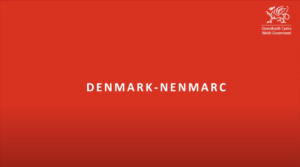Anyone trading with or from Northern Ireland since Brexit will be aware of the increased difficulties and effective border down the Irish Sea. It’s an issue which has been a constant bone of contention, especially with Northern Ireland politicians, leading to the collapse of the Stormont Assembly after the DUP withdrew.
Rishi Sunak, the UK Prime Minister and Ursula von der Leyen, President of the European Commission announced the so-called Windsor Framework on 27th February, hailed as the solution to the issues and a victory for common sense. But what does it mean for international trade? Will it actually improve the situation for UK-NI traders without closing the border between NI and the EU?
One of the key wins is the Green Lane/Red Lane idea where goods from the rest of the UK destined for Northern Ireland will follow a Green Lane, with a separate Red Lane for goods destined for or at risk of ending up in the EU. It has been publicised as if the Green Lane will have virtually no paperwork and movement of goods to NI will be like before Brexit.
As ever the devil is in the detail. There will in fact still be paperwork requirements for traders, albeit at a significantly reduced level. There will still be around 25 datapoints required. This is not being called a Customs Declaration, but some would argue in effect that is what it will be. Goods in the Green Lane will not be subject to systematic checks, though the facility for spot checks is there.
Parcels will not be subject to full customs declarations but from 2024 the parcel operators will be required to share data with the EU to manage smuggling risks.
Current bans on certain products like chilled sausages entering Northern Ireland as a result of EU law will be lifted, meaning anything available in UK supermarkets will once again be available in Northern Ireland. New labelling arrangements will come into force for some goods. UK VAT and Excise Duties will once again apply in Northern Ireland for alcoholic drinks for immediate consumption.
Northern Ireland retailers will have to qualify as trusted traders to benefit from the reduced paperwork, however. Rishi Sunak explains:
“It means food retailers like supermarkets, restaurants and wholesalers will no longer need hundreds of certificates for every lorry,” Sunak said. “If food is available on supermarket shelves in Great Britain, then it will be available on supermarket shelves in Northern Ireland.”
Personal, online shopping and business-to-business parcels sent from Britain into Northern Ireland “will have to complete no customs paperwork”, he said.
Download now: Checklist for exporting from the EU to the UK post-Brexit
Bans on seed potatoes and 11 types of native UK trees will also be lifted. Medicines approved in the UK will automatically be available in Northern Ireland. This is a major boost for pharmaceutical companies in the UK and the NHS.
Goods moving from NI to the rest of the UK will not require paperwork.
On the face of it, this is a good agreement for Northern Ireland, keeping its foot in both the UK and EU with it seems the minimum of bureaucracy. Yet could all be about to implode?
A key element of the framework is the so-called Stormont Break, designed to give the Northern Ireland Assembly a say on how EU laws are applied in Northern Ireland. It can effectively put a brake on new laws being implemented.
Read more: New Northern Ireland framework could unlock US trade deal
The DUP has indicated that it will oppose this element of the framework in a House of Commons vote on 22nd March 2023. If they do, then the future of the overall agreement could be in doubt. The bill will still pass on Wednesday as it has Labour support, but ultimately the DUP must be convinced in order to restart the power-sharing executive in Northern Ireland which has failed to sit for over a year.
Watch this space!









